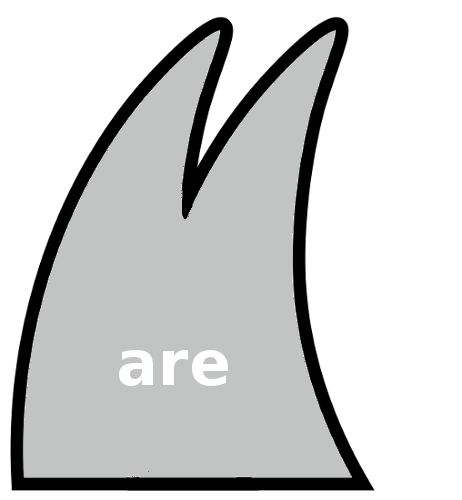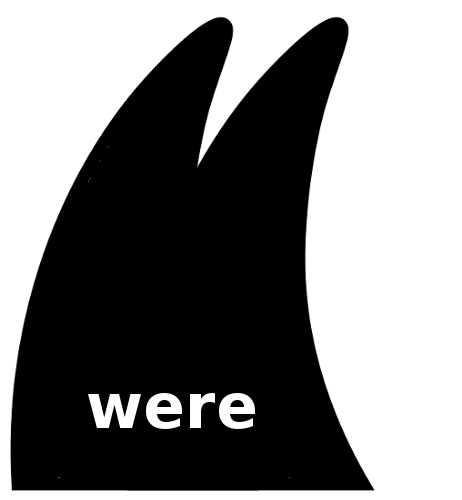






![]()
![]()
![]()
![]()
![]()
![]()

![]()



![]()
![]()




![]()
![]()


![]()
![]()
Диалог 11. DOING ALAN’S ROOM
(to do a room - убирать комнату.
DOING - это герундий. От каждого английского глагола можно образовать ГЕРУНДИЙ.
! Не путайте ГЕРУНДИЙ с формой глагола причастие ing. Причастие ing также можно образовать от каждого английского глагола.
Поэтому при разборе предложения, если имеется окончание -ing, очень важно понять, какая часть речи употребляется в предложении - ГЕРУНДИЙ "ING" или причастие "ing".
В соответствие с этим необходимо правильно перевести предложение.
Переводить ГЕРУНДИЙ на русский язык можно:
1. Русским глаголом
или
2. Русским существительным
или
3. Русским придаточным предложением.
В данном случае перевод может быть седующим:
1. Уборка в комнате Алана.
2. Джина и Эйми убирают(ся) комнату (в комнате) Алана.)
Jeena: Oh, you’re doing Alan’s room, Amy? Can I help you?
Amy: Of course, you can help me. You can dust (to dust - протирать пыль. Существительное "dust - пыль". Схожая пара слов: "to mop - протирать пол". Существительное "a mop - тряпка для пола". Сравните: "подметать пол - to sweep the floor") Alan’s desk (стол. Разница между: "a desk" - горизонтальная или наклонная поверхность, на которую можно класть книги или бумаги; "a table - часть мебели", напр., на кухне "a kitchen table").
Jeena: Good. But what about all these books? (what about - сочетание в неполном [сказуемое отсутствует] предложении, которое можно перевести как "Ну а как насчет ...")
Amy: Put them here, on this little table (Смотрите комментарий к слову "a desk").
Jeena: What’s this small blue book?
Amy: Oh, it Debby’s French novel.
Debby’s French novel.
Jeena: ![]() Alan reading it, Amy?
Alan reading it, Amy?
Amy: He ![]() n’t, but I
n’t, but I ![]() . It’s very good. You can read it too, Jeena.
. It’s very good. You can read it too, Jeena.
Jeena:It’s very long. It’s too long ("too" - переводится как "тоже или слишком". В данном случае - "слишком") for me.
Amy: It not so long. For a novel it’s very short.
not so long. For a novel it’s very short.
Jeena: Oh, (междометие "oh" - выражает множество оттенков в речи:"ой; "ух"; "эх"; "правда?"; "да ну?". Очень редко переводится как "ох". При переводе следует переводить это междометие по контексту) well, I can try. Now, what about (см. комментарий выше) these papers? Can I put them in order? (to put smth. in order - приводить в порядок)
Amy: Not now. I can do it later.
Jeena: Look at that lamp, Amy. It’s very dusty.(однокоренные слова dusty -dust - to dust: пыльный-пыль-протирать пыль )
Amy: Yes, we must wash (to wash - мыть/вымыть) it.
Jeena: But we can’t reach (to reach - дотянуться/тянуться) it. It’s too (слишком) high up (высоко).
Amy: Run downstairs and call Alan, Jeena. He must help us.
Jeena: Alan’s reading a newspaper (газета).
Amy: Oh, well. We can wash that lamp later. Dust first these chairs now, Jeena. And we must finish with (to finish with - закончить/заканчивать) Alan’s desk. Oh, here he ! (А вот и он!)
! (А вот и он!)
Alan: What you doing here you two?
you doing here you two?
Amy: We putting your things in order (to put smth. in order - приводить в порядок). We
putting your things in order (to put smth. in order - приводить в порядок). We just finishing.
just finishing.
Alan: Oh, e..h you really mustn’t work so much, darling. And… oh, you mustn’t disturb (трогать; двигать) my papers (бумаги) , Amy. Jeena, what’re you doing with my books? I need them here, on my desk.
Amy: Alan, you  hopeless.(
hopeless.(![]() hopeless- неисправим)
hopeless- неисправим)
LISTEN AND REPEAT
Amy and Jeena doing Alan’s room. They
doing Alan’s room. They dusting his books. They
dusting his books. They putting his papers in order. They can’t reach his lamp, it’s too high up. Alan
putting his papers in order. They can’t reach his lamp, it’s too high up. Alan busy and they mustn’t disturb (to disturb - мешать кому-л.) him.
busy and they mustn’t disturb (to disturb - мешать кому-л.) him.
ПЕРЕВЕДИТЕ НА РУССКИЙ ЯЗЫК
Where  Amy, Jeena and Alan? - Amy, Jeena and Alan
Amy, Jeena and Alan? - Amy, Jeena and Alan in their house.
in their house.
Where  Amy and Jeena? - They
Amy and Jeena? - They  in Alan's room.
in Alan's room.
Where Alan? - Alan
Alan? - Alan  downstairs.
downstairs.
What![]() Amy doing? - Amy
Amy doing? - Amy in Alan's room. Amy
in Alan's room. Amy ![]() doing his room.
doing his room.
What ![]() Amy doing when Jeena came into Alan's room? -
Amy doing when Jeena came into Alan's room? -
Amy ![]() doing Alan's room when Jeena came in.
doing Alan's room when Jeena came in.
 Alan in his room when Amy and Jeena
Alan in his room when Amy and Jeena  doing his room?
doing his room?
What![]() Alan doing when Amy and Jeena
Alan doing when Amy and Jeena![]() doing his room?
doing his room?
What![]() Alan doing downstairs? - Alan
Alan doing downstairs? - Alan![]() reading a newspaper downstairs.
reading a newspaper downstairs.
![]() Alanreading a French novel? - No, he
Alanreading a French novel? - No, he![]() not. Alan
not. Alan ![]() not reading a French novel. He
not reading a French novel. He![]() reading a newspaper.
reading a newspaper.
 Alan happy when he saw Amy and Jeena in his room? - No, he
Alan happy when he saw Amy and Jeena in his room? - No, he not. Alan
not. Alan not happy when he saw Amy and Jeena in his room.
not happy when he saw Amy and Jeena in his room.
Alan  not like it because he
not like it because he  not like when his books and papers
not like when his books and papers  being disturbed.
being disturbed.
Диалог 12. MODERN ART (СОВРЕМЕННОЕ ИСКУССТВО)
Alan: Come ("to come" в конструкции "Come and play" следует переводить как "Давай поиграем" = "Let's play") and play ping-pong with me Jeena.
Jeena: I can’t, Alan, I’m busy (![]() busy - быть занятым). I have a drawing (to draw - рисовать; drawing - рисунок; рисование) lesson tomorrow. I must finish this drawing.
busy - быть занятым). I have a drawing (to draw - рисовать; drawing - рисунок; рисование) lesson tomorrow. I must finish this drawing.
Alan: What it?
it?
Jeena: A park.
Alan: Oh. And what’s this? A tree?
Jeena: A tree? No, it’s a man.
Alan: A man? Where his legs? He has only one leg.
his legs? He has only one leg.
Jeena: Of course not ("Да конечно же нет!". Это очень эмоционально сказанная фраза). He has two. Here. ("Here" в этом случае переводится не как "Здесь", а "Вот!")
Alan: Uhm… And this his head? Why
this his head? Why it so big?
it so big?
Jeena: That not his head at all (словосочетание употребяется в отрицательном предложении и переводится как "совсем не" или "вовсе не"). It’s his hat. He has a hat on his head.
not his head at all (словосочетание употребяется в отрицательном предложении и переводится как "совсем не" или "вовсе не"). It’s his hat. He has a hat on his head.
Alan: Dear me...(Восклицание, выражающее удивление. Его можно перевести как "О боже!" или "Ну и ну!" и проч.) And that figure (фигура) behind (позади; за) him.  that a man too?
that a man too?
Jeena: No, it’s a woman.
Alan: Why her arms so short?
her arms so short?
Jeena: They n’t short. She’s holding (to hold - держать) them behind her back ("a back" - спина; "back" - назад; обратно;
n’t short. She’s holding (to hold - держать) them behind her back ("a back" - спина; "back" - назад; обратно; ![]() back - возвращаться).
back - возвращаться).
Alan: And those figures over there.  they men or women (Внимание: единственное число "a man" множественное число "men"; "a woman"[wumən] множественное число "women" - произносится как [ wimin]?
they men or women (Внимание: единственное число "a man" множественное число "men"; "a woman"[wumən] множественное число "women" - произносится как [ wimin]?
Jeena: They children (Внимание: единственное число "a child - ребенок" множественное число "children - дети"). Look, this child
children (Внимание: единственное число "a child - ребенок" множественное число "children - дети"). Look, this child![]() holding a cat, and these two
holding a cat, and these two playing with a dog. Those boys…
playing with a dog. Those boys…
Alan: Boys? How can they![]() boys? They must
boys? They must ![]() girls. They have very long hair.
girls. They have very long hair.
Jeena: Oh Alan, you hopeless. This
hopeless. This modern art. You can’t understand (to understand - понимать) it.
modern art. You can’t understand (to understand - понимать) it.
Alan: No, I can’t. (Внимание: переводится как "Да, не понимаю") But you have talent, Jeena. I can see that.
LISTEN AND REPEAT
I have a drawing lesson tomorrow. What you drawing, Jeena? A park. And this
you drawing, Jeena? A park. And this a man. He has a hat on his head. And what
a man. He has a hat on his head. And what  those figures over there (вон там)? – That
those figures over there (вон там)? – That a woman and that
a woman and that a child. All this
a child. All this modern art.
modern art.
Answer the questions.
Can Jeena draw men and women? – Yes, she can.
Can she draw boys and girls? - Yes, she can.
Has she talent? – Yes she has.
Диалог 13. WHERE’S THAT HAMMER?
Alan: Amy. Amy! Oh, dash it. Amy! ("dash it!" - нетабуированное ругательство)
Amy: What it, Alan? What
it, Alan? What you doing on that ladder? ( a ladder - лестница для перемещения на высоту; stairs - лестница между этажами)
you doing on that ladder? ( a ladder - лестница для перемещения на высоту; stairs - лестница между этажами)
Alan: I must hang (to hang - вешать что-л; повесить как мера наказания) this picture. I need a hammer (молоток). Bring me a hammer, please Amy.
Amy: Good. But where your hammers Alan?
your hammers Alan?
Alan: Where? There’s a hammer on my desk.
Amy: On your desk? No, Alan. There’s a knife (нож/ик) on your desk. There some nails (гвозди) there too. But I can’t see a hammer. (Слово "some" может переводиться как:
some nails (гвозди) there too. But I can’t see a hammer. (Слово "some" может переводиться как:
1)"какой-то/какая-то/какие-то", например, в предложении: "Some woman wants to speak to you - Какая-то женщина хочет поговорить с тобой";
2) "немного": "Every human wants some happiness. - Каждый человек хочет немного счастья";
3) однако чаще "some" ставится перед существительными во множественном числе, или неичисляемыми, типа "вода", "сахар", "отдых" и проч. "Some" можно считать "заменителем" неопределенного артикля "a". См в этом диалоге: There’s a knife on your desk. There some nails there too.
some nails there too.
Так же есть другие случаи использования "some" в предложениях. Об этом можно узнать в различных грамматических пособиях, учебниках, словарях и на многочисленных сайтах.)
Alan: Perhaps, there’s a hammer in that box (коробка) over there.
Amy: No, there only small keys in it.
only small keys in it.
Alan: Try that drawer (выдвижная полка) then (тогда), Amy.
Amy: Good. No, there only some broken pencils in it. Oh, there’s also a nice red pencil here. And it
only some broken pencils in it. Oh, there’s also a nice red pencil here. And it  n’t broken. Can I take it, Alan? (В этом случае " Can I?" используется как просьба)
n’t broken. Can I take it, Alan? (В этом случае " Can I?" используется как просьба)
Alan: Amy, I can’t hold this picture forever (все время; многие годы). Get me a hammer at once.
Amy: Perhaps, there’s a hammer in Jeena’s room upstairs. I can go and look for (to look for - искать ) it. Look out (Берегись!), Alan! (Alan falls down - Алан падает). Oh, dear!("Oh, dear!" - восклицание можно перевести как "О боже!")  you all right, Alan?
you all right, Alan?
Alan: Oh, dash this picture! No, it’s broken.
Amy: Well, Alan, you needn’t hang it now and I needn’t look for a hammer.
LISTEN AND REPEAT
Alan: I must hang up this picture. I need a hammer.
Amy: There’s only a knife on your desk, Alan. There some nails there too. There
some nails there too. There small keys in that box over there. There
small keys in that box over there. There  some broken pencils in your drawer.
some broken pencils in your drawer.
Alan: I can’t hold this picture forever. Get me a hammer at once.
Amy: Look out, Alan!  you all right? I needn’t look for a hammer now.
you all right? I needn’t look for a hammer now.
______________________________________________________


